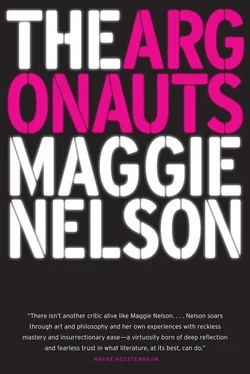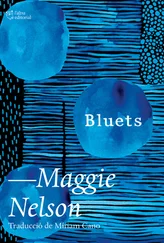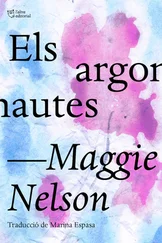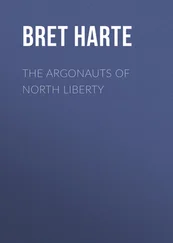Before the birth of her daughter, Linda, it turns out Mary suffered several stillbirths — too many, apparently, for her to give a number — as well as the crib death of a six-week-old. About all this, Mary writes:
Birth … I think I am afraid to try to write of it. In childbirth I was isolated; I never talked about it even to George. He was surprised to learn that giving birth was a peak emotional experience and so entirely my own that I never tried to express it…. I would wish it to remain whole, and I have preserved the wholeness of my own experience of birth by not telling it; it is too precious to me. Even now, writing of the experiences of age twenty-four to thirty, I wish to encompass my isolation and the wracking devastation of loss, the sense of being a nothing on the delivery table, knocked out by anesthetic, only to regain consciousness and be told once more, “The fetus is dead.”
George and Mary are famous for living a life in conversation, in poetry. We talked as I had never talked before, an outpouring . But here, Mary is unsure that words are good enough. I never talked about it even to George . Her experience may be one of devastation, but she still worries that words might chip away at it (intolerable).
Nonetheless, years later, as her husband begins to peel away from language, Mary tries to tell.
In his epic treatise Bubbles , philosopher Peter Sloterdijk puts forth something he calls the “rule of a negative gynecology.” To truly understand the fetal and perinatal world, Sloterdijk writes, “one must reject the temptation to extricate oneself from the affair with outside views of the mother-child relationship; where the concern is insight into intimate connections, outside observation is already the fundamental mistake.” I applaud this involution, this “cave research,” this turn away from mastery and toward the immersive bubble of “blood, amniotic fluid, voice, sonic bubble and breath.” I feel no urge to extricate myself from this bubble. But here’s the catch: I cannot hold my baby at the same time as I write .
Winnicott acknowledges that the demands of ordinary devotion can be frightening for some mothers, who worry that giving themselves over to it will “turn them into a vegetable.” Poet Alice Notley raises the stakes: “he is born and I am undone — feel as if I will / never be, was never born. // Two years later I obliterate myself again / having another child … for two years, there’s no me here.”
I have never felt that way, but I’m an old mom. I had nearly four decades to become myself before experimenting with my obliteration.
Sometimes mothers find it alarming to think that what they are doing is so important and in that case it is better not to tell them. It makes them self-conscious and then they do everything less well…. When a mother has a capacity quite simply to be a mother we must never interfere. She will not be able to fight for her rights because she will not understand .
As if mothers thought they were performing their ordinary devotions in the wild, then are stunned to look up, and see a peanut-crunching crowd across a moat.
Shortly after returning to work after having Iggy, I ran into a superior in the cafeteria. He gallantly purchased me my “vegan comfort meal” and a Naked juice. He asked when my next book would be out; I told him it might take a minute, as I had just had a baby. This sparked a story for him about a colleague he’d once had, a Renaissance studies professor, who allegedly found her newborn so fascinating that for two whole years, her Renaissance research struck her as esoteric and boring. But then, after two years, her interest came back , he said. It came back , he repeated, with a wink.
Over time, I have come to suspect that my affection for Bubbles may have less to do with its endorsement of the rule of negative gynecology, and more to do with its ridiculous title, which it shares with Michael Jackson’s pet chimpanzee.
Michael doted on Bubbles. But Michael would also rotate the chimp out of service as it aged, and replace it with a new, younger Bubbles. (Cruelty of the Argo? )
When I was growing up, my mother would sometimes tell me to switch the TV channel to a station with a male weatherman. They usually have the more accurate forecast , she’d say.
The weather people are reading a script , I would say, rolling my eyes. It’s all the same forecast .
It’s just a feeling , she would shrug.
Alas, it isn’t just a feeling. Even if women are consulting the same satellites, or reading from the same script: their reports are suspect; the jig is up. In other words, the articulation of the reality of my sex is impossible in discourse, and for a structural, eidetic reason. My sex is removed, at least as the property of a subject, from the predicative mechanism that assures discursive coherence .
Irigaray’s answer to this conundrum?: to destroy … [but] with nuptial tools…. The option left to me , she writes, was to have a fling with the philosophers.
In October of 1998, just a few weeks into my graduate school career, I was invited to attend a seminar with Jane Gallop and Rosalind Krauss. Gallop would be presenting new work, to which Krauss would respond. I was excited — back in college I had liked Gallop’s heady, disobedient books on Lacan (such as The Daughter’s Seduction ); they evidenced a deep investment in Lacanian thought without seeming to have drunk the Kool-Aid. She was having a fling with the philosophers all right, but she seemed to be learning everything there was to know about the boiler room so that she could blow it up. Krauss’s work I knew less well, but I gathered that everyone was invested in her theories about the modernist grid, and I liked the plain matte cover of October magazine. Didn’t she write on Claude Cahun? I liked Claude Cahun. And busting the avant-garde’s mythos of itself was, even then, my idea of a good time.
The professors gathered solemnly around a long wooden table in one of the more handsome rooms at the Grace Building, where CUNY was then situated. I felt as though I had truly arrived — somehow I had been plucked from the corner booth of Max Fish and deposited in the center of an intellectual mecca, complete with dark wood and academic superstars.
Gallop gave a slide show: her recent work was about being photographed by her husband, appropriately named Dick. I remember a photo of her with their baby boy in the bathtub, and one of her and her son lounging around together naked, Carole King — style. I remember being surprised and pleased that she was showing us naked photos of her and her son, and talking unabashedly about her partner Dick (heterosexuality always embarrasses me). She was trying to talk about photography from the standpoint of the photographed subject, which, as she said, “may be the position from which it is most difficult to claim valid general insights.” And she was coupling this subjective position with that of being a mother, in an attempt to get at the experience of being photographed as a mother (another position generally assumed to be, as Gallop put it, “troublingly personal, anecdotal, self-concerned”). She was taking on Barthes’s Camera Lucida , and the way in which even in Barthes — delectable Barthes! — the mother remains the (photographed) object; the son, the (writing) subject. “The writer is someone who plays with his mother’s body,” Barthes wrote. But sometimes the writer is also the mother (Möbius strip).
I liked that Gallop was onto something and letting us in on it before she fully understood it. She was hanging her shit out to dry: a start. She was droopy-eyed and louche in a way that I liked, and had that bad but endearing style that so many academics have — kind of stuck in the ’80s, feather earrings, and so on. She even talked about how much she liked a shirt she was wearing in one of the slides — a black button-down with white bubbly scribbles all over it. I find it irresistibly interesting when people are cathected onto their bad style rather than simply oblivious to it (a description that may apply to us all; I sense the risk increases with age).
Читать дальше












